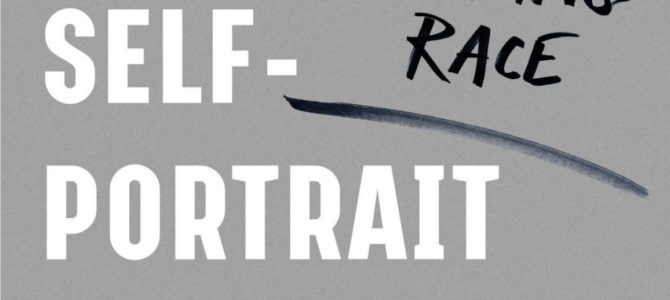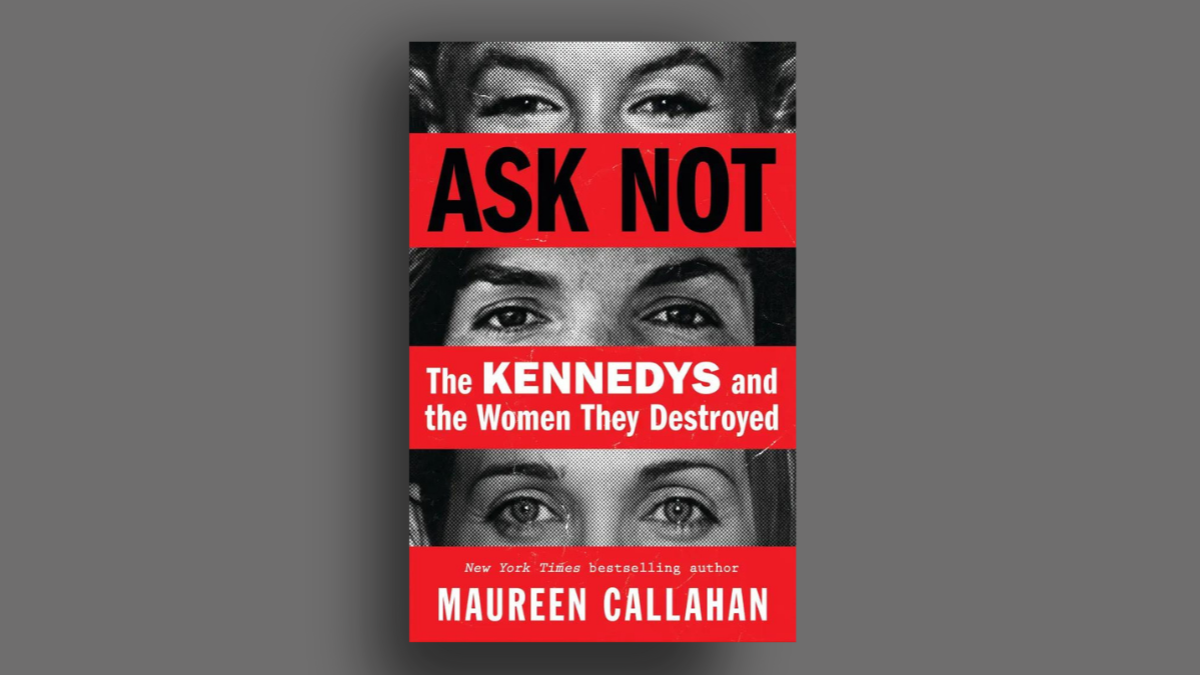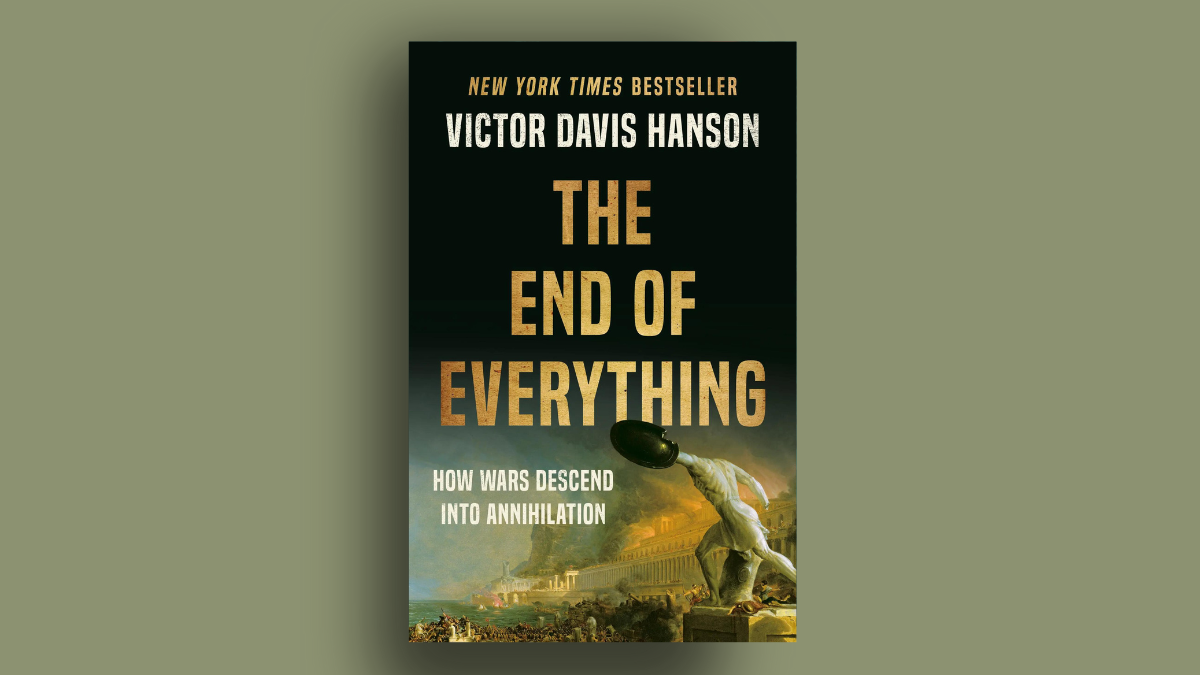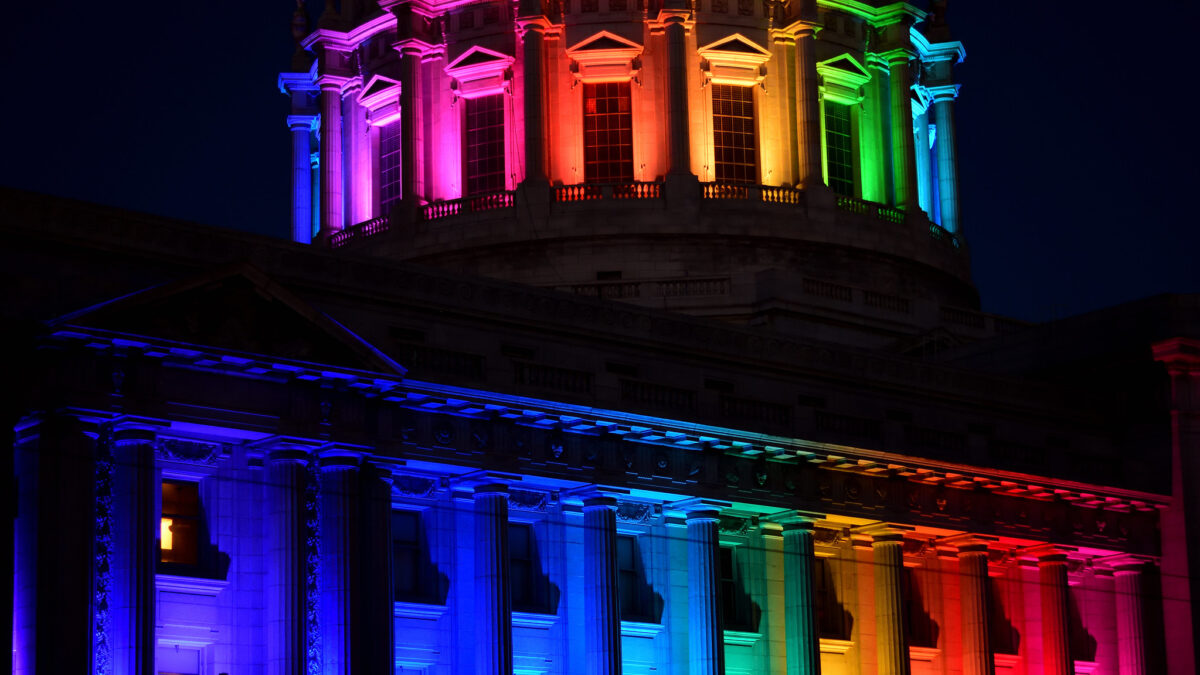
There is a saying from Roman antiquity: Nihil humanum a me alienum puto. “I am human and I consider nothing human alien to me.” I confess this swaggering pronouncement (by the Roman poet Terence) has always left me feeling a touch ambivalent.
For starters, there is a great deal about the human condition that, upon reflection, is quite alienating. Ignorance, solipsism, envy, cruelty, capriciousness, bigotry, vulgarity, idiocy, superstition, provincialism, and cowardice, to name a few. Not a very agreeable list, but then man is the only animal that blushes, or needs to.
Nonetheless, there is surely something to credit in the idea of the unity of human experience, and in the solidarity of human belonging. For better or worse, the concept of human nature is not infinitely plastic, and to a remarkable degree, members of our species are the same everywhere. This insight is powerful ballast against the eternal promptings of race and tribe. As Thomas Chatterton Williams points out in his learned and candid memoir, Self-Portrait in Black and White: Unlearning Race, Terence did not proclaim, as he might have, “I am Roman, therefore nothing Roman is alien to me.”
It would be quite impossible to reconcile Terence’s imperishable (if not pristine) insight with any form of racism, which we may define ab initio as the belief that there are human races. This capacious Roman notion of humanity will not be pressed into the service of chauvinists who are accustomed to thinking with their epidermis, and denying that human beings share a common nature.
It is also a salutary reminder that the very idea of distinct human races is old but not ancient. One need not visit the Swedish history museum in Stockholm to discover that the roots of racism can be traced to the 1735 publication of Systema Naturae by the naturalist Carl Linnaeus.
Williams opens Self-Portrait in Black and White with the understanding that our modern concept of race was erected on this shabby scaffolding. He is well-positioned to grasp what basic biological reality and genome studies have taught us, namely that using distinct races as a means of categorizing the species Homo Sapiens is empirically insupportable, in addition to being philosophically primitive.
The son of a “black” father and a “white” mother, Williams grew up earnestly believing in the old American rule that a single drop of “black blood” makes a person—in this case himself—“black.” Instructed by his parents that there’s no such thing as “half-white” in a world where “black” is a social construct, and a salient one at that, Williams asserted his “blackness.”
Self-Portrait
This identity would not prove a lasting one. After moving to Paris with his French wife, Williams greeted the birth of his conspicuously white-looking daughter, Marlow, with the shock of recognition that “whatever personal identity I had previously inhabited, I had now crossed into something new and different.” Against America’s conception of the fixedness of race, he decided that Marlow’s blond hair and “inky-blue irises” offered irrefutable evidence “of the fluidity of racial borders.” From then onward, this rupture of identity leaves Williams determined to bow out of “the all-American skin game that demands you select a box and define yourself by it.”
Separated into three accessible chapters, Self-Portrait in Black and White is a carefully argued and elegantly written plea for the colossal chore of “unlearning race.” It is an engaging and incisive meditation on the author’s “confrontation with the fiction of race”—a fiction that (you may have noticed) still holds many in its thrall.
The subtext of much of today’s mainstream discourse on the subject is that America’s racial composition is essentially binary. If this weren’t so, the implied hierarchy of racial identities that fuel heated arguments about affirmative action or reparations would be drained of much of their energy and coherence.
Williams refuses to abide the “narcissism of the small difference” that sustains this flawed and backward way of thinking, which he contends is simultaneously too exacting about the color line and, somehow, not exacting enough. For what kind of mental framework allows the author and other mixed-race people to be “laughed at scathingly” for identifying as black one day, and berated for rejecting the same identity the next? What is race, Williams is compelled to ask, “if a man, at various stages, can be either “black” or “white”?” It’s a good question, and one not easily evaded by anyone who participates in this corrupt and corrupting kabuki play.
The problem of racial difference in America—and abroad, where racial categories can vary dramatically from those in these United States—“is always presented as an economic, political, biological, or cultural problem,” observes Williams. “But I want to say that it’s at least as much a philosophical and imaginative disaster.”
After exposing and combating the sheer absurdity of racial categorization and its related “mechanisms of conformity and control,” Williams’s conclusion is deceptively simple: for people “of all skin tones and hair textures” to “turn away from the racial delusion” that has so brutalized, impoverished, and embittered the human experience. What amounts to an accident of birth, after all, is a poor grounds for identity, allegiance, or meaning. It is, in other words, a grave mistake to believe that identity is only inherited when it can and must also be forged.
The author makes clear that he is not renouncing his “blackness” so much as “rejecting the legitimacy of the entire racial construct in which blackness functions as one orienting pole.” Understanding that human variation is gradual rather than discrete, Williams is loath to make too much of it. (He does not wade into the thorny subject of race as a pragmatic construct based on real variation corresponding to shared ancestry that allows some useful, if basic, inferences to be drawn.)
He suggests that most so-called “black” people “do not feel at liberty to simply turn off or ignore their allotted racial designation, whether they would like to or not. But that doesn’t mean they shouldn’t” (original emphasis).
Imaginary Flowers
This declaration of abstention will repel the identitarians in our midst, who insist that difference is here to be reinforced rather than transcended. But, if emulated, will such a declaration leave anyone shorn of hope or empowerment? Not in the least. The alternative to thinking, or feeling, in black and white is to unblinkingly face the facts of existence, and take hold of “the beautiful truth, in all its terrifying complexity, that we all contain multitudes.”
By this point, I was put in mind of what Karl Marx wrote (in his Critique of Hegel’s Philosophy of Right) about religion being the opium of the people. This frequently misunderstood argument is pregnant with implications for our preoccupation with race as an overriding form of identity and means of uplift. It deserves to be quoted at length.
Religious distress is at the same time the expression of real distress and the protest against real distress. Religion is the sigh of the oppressed creature, the heart of the heartless world, just as it is the spirit of a spiritless situation. It is the opium of the people. The demand to give up the illusions about its conditions is the demand to give up a condition that needs illusions. Criticism has plucked the imaginary flowers from the chain not so that men will wear the chain without any fantasy or consolation but so that they will break the chain and cull the living flower.
The “imaginary flowers” adorning the chain of race (to leave the matter of religion aside) can be understood as the defensive retreat into tribal identities. Identity politics defined by race is an understandable emotional response to persistent prejudice, but it is also an intellectual and political cul de sac that cannot supply a common ground on which all citizens can stand together.
The indisputable fact is that, while inequities based on past and present oppression and bigotry persist, race has never been less of a barrier to personal advancement. This is no reason to diminish our fervor for fairness, or to lose sight of the real and intolerable obstacles that stand in the way of full equality. But it is a compelling reason to seek the overthrow of those obstacles from within the system that has brought us this far.
In a particularly affecting passage, Williams confesses that leaving behind his racial identity could be construed as a betrayal of his (“black”) ancestors, who suffered grievously on account of it. This is precisely how Williams’s labor will be perceived and portrayed by a legion of detractors and social justice advocates who count themselves proud members of “his” race. In conversation with an acquaintance of similar disposition, Adrian Piper, he confesses his abiding anxiety that his daughter might grow up unafflicted by guilt for her “people’s” past evils. (Would this indifference, he seems to wonder, constitute a “white” lie?)
“Why would you want that in the first place?” she replies matter-of-factly. “If the pain and the guilt isn’t there, why introduce it?” Williams had never encountered such a frontal challenge to this pious and plaintive premise of allegiance to the past. He found her objection surprisingly difficult to counter.
“It seemed of a piece with something Richard Wright once stated: Every hour that a man is fighting for his freedom is an hour that he is not free,” he writes. This spurs the thought that perhaps the most glorious triumph over racism is not ferocious anti-racist campaigning, so much as instinctive and steadfast autonomy from the entire concept.
Abjuring a posture of either submission or resistance to such a pernicious and ridiculous dogma, this spirit of independence charts its own course and aspires to be master of its own fate. It takes for granted the “ancient right” that, in Kipling’s words, gently but firmly insists on “leave to live by no man’s leave.” Did the vast historical injustice endured by his people not justify—nay, did it not demand—such a life? To ask the same question in a different way: Was it not a shame, after so much horrendous suffering, for a life to be lived not wholly free, still encumbered by the backwardness of racism and reeling from the weight of history?
The Value of Authenticity
It is impossible to forget that we still live in the prehistory of the human race, but it has nonetheless been thoroughly depressing—shocking, even—to behold how resilient the old claims about racial difference have proven in a time when most of us hoped that any such claims might have lost their grubby power. Terence’s emphasis on the universal rather than the particular has acquired a bad odor in America’s governing class since the conscription of “identity politics” by the political right. “No aliens are human,” to reprise an old jab against the Immigration and Naturalization Service, seems to be the de facto slogan of the current administration and, by extension, the party and nation for whom it is the standard-bearer.
There was a period, before the advent of Trump, when identity politics was widely thought to be a property of the “left,” and perhaps the neo-Marxist left, at that. This is plainly no longer so, if it ever was. The bulk of the right is, by outward appearance, nurturing a new nationalism, expressly opposed to the liberal principles of the founding in favor of a nationhood rooted in culture and religion. As such, it is no longer interested in being—or even pretending to be—a foil to the tribal impulses of the left, but rather bids fair to be an incubator of its own.
This illiberal nationalist movement has entrenched the salient and shameful habit of American society to deliberately flinch from the unconscionable fact of involuntary servitude that so long disfigured this republic. That the Confederate banner and other symbols of the Slave Power became an early flashpoint in the Trump-era culture war came as no surprise to anyone.
Meanwhile, there’s no question that, with progressives tirelessly cultivating subgroup grievances in accord with critical race theory, and “consciousness” on the basis of these affiliations, the left is continuing its long march into the morass of identity politics. A recent book in this genre, Ibram X. Kendi’s How to be an Anti-Racist, argues for a more capacious definition of bigotry that acknowledges “capitalism is essentially racist.”
It has apparently decided that essentialism—the idea that the most salient thing about a person is his or her race—neither can be nor should be transcended. Since these confining categories are widely understood to be mere “reflections” of our demographic identity, it is increasingly believed that individuals are not only products but also prisoners of them.
The Democratic primaries of this year have put on stark display that the party of Jefferson and Jackson—or rather, since those once-venerable names have become irretrievably tarnished in progressive eyes, let’s say the party formerly belonging to those racist figures—is in the grips of what Mark Lilla, no conservative, has dubbed “a kind of moral panic about racial, gender, and sexual identity.” Bizarrely, in the New York Times’ “1619 Project,” the left’s flagship publication even pronounced our democracy’s ideals to be “false when they were written.”
The time when the concept of a fixed and universal human nature, as well as the majestic-if-fallen human condition, was still regnant in American political life appears to have ended. Within a brief passage of time we have traveled a great distance, all sail and no anchor, away from the original premises and purposes of the American experiment. Instead of appreciating the complex nature of identity as a multiple and plural phenomenon, more chosen than inherited, the reigning ideology of the day presses individuals into members of a tribe. This flattening of the individual self points to the atomization of society into a hierarchy of warring identity and interest groups.
It’s considered the height of enlightened thinking to deny the unassailable truth that progress has been made on the race question in the United States, as if the dogs, firehoses, and billy clubs of white supremacy still reign in this land. This ideology of anti-racism (as opposed to hostility to racism) has become what John McWhorter calls a “secular religion,” in which whites acknowledge that they possess “white privilege” (akin to acknowledging one’s fundamental sinfulness as a Christian). Any dissent from this dogma is regarded as blasphemy against the one true faith, and must be punished accordingly.
It is against this bleak background that one begins to appreciate the subtlety and audacity of Williams’s enterprise. Without that background, his project looks very much like common sense. As virulent and discrepant forms of identity politics gain broad purchase, Williams rebuffs the perverse effort to racialize, and therefore politicize, every realm of human existence. The only way to do right by the worth and dignity of the human personality is to preserve some sense of a brotherhood under the skin, just as Terence exemplified.
In the midst of the balkanizing tendency to chisel away at the keystone in the arch of the American creed—e pluribus unum, “out of many, one”—Williams insists on keeping it firmly in place. Instead of indulging the false comfort of narrow identity and allegiance, he takes refuge in what Lincoln called “the whole great family of man.” It is that refuge which nurtured, and still nurtures, America’s incomplete but immense progress relating to race—progress on which the viability of liberal civilization depends.
In Against Identity, Leon Wieseltier declared that, “Only one in possession of an identity would understand why one would wish to be rid of it.” Williams has had ample opportunity to absorb the force and weight of that curse for himself and, having done so, intends to “retire from race” for good. This mental and moral achievement is made possible by the judgment—deceptively simple but unfailingly agonizing—that the principle of freedom is of the essence of a life well-lived.
Whatever the value of today’s sought-after “authenticity” in the eyes of others—and the value it confers is appallingly high—it is never worth the tradeoff of being false to oneself. Standing athwart the color line, Williams is adamantly resolved to live and act as if he were free, and in so doing furnishes us all with an example of emancipation to be admired and emulated.









